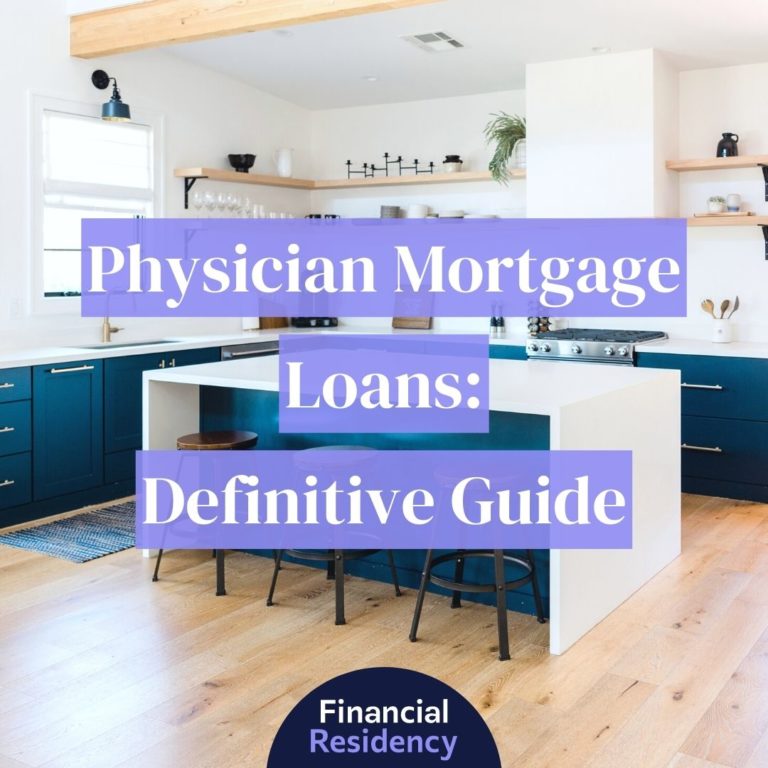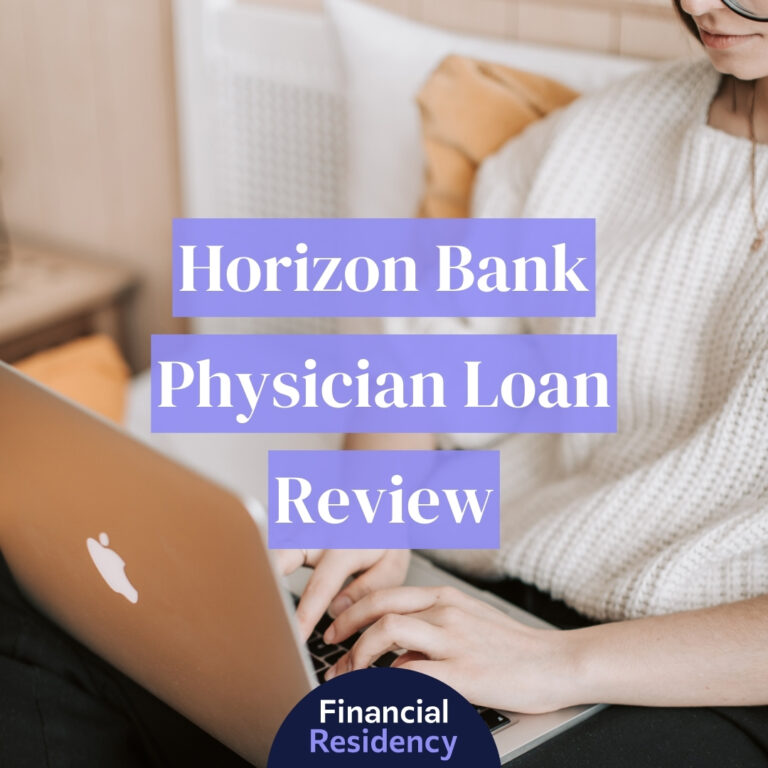Physician loans help residents, fellows, and newly licensed doctors get financing for a home, even with large amounts of student debt. Banks like PNC offer programs that don’t charge PMI and have low down payment requirements, allowing doctors to buy a home early in their careers.
PNC is a well-known nationwide bank that offers many banking and lending services, including physician loans. Check out what they have to offer and how the PNC physician loan program compares to other loans for doctors.
About PNC Bank
PNC Bank was a merger of two prominent banks in 1983, Pittsburgh National Corporation and Provident National Corporation. Both banks had a large presence in Philadelphia, and the merger created Pennsylvania’s largest bank.
- BBB score: A+
- CEO: Bill Demchak
- Power Score: not disclosed
- Parent company: PNC Financial Services Group
- Phone number: 888-762-2265
- Services offered: Personal banking, small business and corporate banking, home, auto, and personal loans, investments, private wealth management, payment services
PNC Bank Physician Loan Fast Facts
Here are some quick facts about physician loans from PNC Bank.
- Discounts: n/a
- Financing options: Gift funds allowed as a part of the down payment
- Physician loan products: Fixed and adjustable-rate loans
- Maximum loan amount: $1 million
- Qualifying degrees: not disclosed
- Private mortgage insurance: Not required
PNC Physician Mortgage Loan Qualifications
- Good to Excellent Credit: not disclosed
- Down Payment: A low down payment is required, but gift funds are allowed
- Owner-Occupied Property: Must only be used on a primary residence
- Eligible Degree: Available for interns, residents, fellows, and doctors who completed residency within the last five years
- Significant Savings: not disclosed
- Verified Income: not disclosed
Discover The Best Lenders Answer just a few questions about your career, where you're buying, and how much you want to borrow. Our service will then show you the exact programs you're eligible for from vetted physician loan specialists who will guide you through every step of the process – obligation-free!
How to Apply
Knowing what to expect from the PNC physician loan program’s application process can help you be the most prepared.
Gather Required Documentation
To qualify for a PNC physician mortgage, you must provide documentation proving your income and assets. PNC must be able to verify your income from paystubs and W-2s if you’ve already begun working. They will need an executed employment contract if you haven’t started working.
They’ll also look for bank and investment statements to prove any money you state you have on your loan application. This includes money for the down payment or any reserves PNC requires to qualify you for the mortgage. You’ll need at least two months of statements from each account.
You may also need a credit card or other loan statements if there are discrepancies on your credit report. You will also need personal identification documents to prove your identity.
Research PNC Physician Loan Offerings
You should work with a PNC loan officer to determine the loan offerings you qualify for based on your qualifying factors, including your income, assets, credit score, and down payment.
PNC has fixed and adjustable-rate options for physician loans, so you can review your options and determine which makes the most sense regarding the loan’s monthly payment, interest rate, and long-term cost.
Pre-Qualification
To determine if you qualify, consider getting pre-qualified. This isn’t a solid approval, but it lets you know how much you might be able to afford. This provides the chance to learn how much loan you can borrow so you know which homes are within your price range.
After recently starting your position, you’ll also get a good idea of what the loan will cost to see if it’s an obligation you want to accept.
Complete the Application
If you decide you want to move forward, complete a loan application. It’s the same application you’d complete with any lender, as it’s a standardized form.
On the application, you’ll disclose your personal information, employment, income, assets, and liabilities.
PNC must verify all information on the application, so ensure you provide only truthful information and have adequate documentation to support it.
Submit Documentation
With your application, you can submit the gathered documentation. Your loan officer may ask for more documentation during underwriting, but for now, you can get the ball rolling by providing the following:
- Paystubs for the last 30 days
- W-2s for the previous two years (or less if you just started)
- Asset statements from the previous two months
- Tax returns for the previous two years (or less if you just started)
- Employment contract if you haven’t started your job yet
Underwriting and Approval
After submitting your loan application and documentation, PNC underwriters will review everything. They’ll determine if you can afford the loan you’re applying for by looking at your credit scores, income, and assets.
They may provide conditional approval with updates on the documentation and proof they need to finalize the approval. You can use the preapproval letter when looking at homes. When you’re ready to make an offer, you can show that you were approved for financing under the conditions stated.
Property Appraisal
If you enter a sales contract and are ready to move forward, PNC will order a property appraisal. This is the next big factor in determining your eligibility because the property must be worth enough to be supportive collateral for the loan.
Loan Approval and Closing
After the underwriter receives all the pieces to the puzzle and determines you qualify for the loan, they will give their final approval, and you can head to the closing table to finalize the purchase of your primary residence.
PNC Bank Physician Loan Alternatives
Physician loans are a big undertaking because they are often for large loan amounts and high monthly payments. Exploring your options is important.
1. Huntington Bank
Huntington Bank offers physician loans to doctors, dentists, podiatrists, veterinarians, and ophthalmologists.
Physicians can borrow up to $1 million with no money down, 5% down on $1,250,000, and 10% on $2 million. No doctor pays PMI, no matter the size of the down payment.
The loans are available as fixed and variable rate loans, and you can secure the mortgage even if you haven’t started your position yet, as long as you have an employment contract.
The loan program is also available as a refinance with cash-out options up to $250,000, but like PNC, the program is limited to primary residences.
2. KeyBank
KeyBank offers physician loans for medical doctors and dentists for up to $3.5 million. They require down payments as low as 5% and fixed or variable interest rates.
Like PNC, KeyBank doesn’t require PMI on any loans, no matter the size of the down payment. The program is available as a rate/term refinance, cash-out refi, or home purchase.
3. BMO Bank
The BMO Bank physician mortgage program is open to residents, fellows, and new doctors, including medical doctors, dentists, DMDs, and DOs, as a fixed or adjustable-rate loan.
The program is available as a purchase loan or rate/term refinance of the primary residence. The property must be a single-family, 1-2 unit, condominium, or townhome, and can be in any state except New York.
Unlike most physician loans, BMO Bank allows the program to doctors in practice for ten years or longer, but with a 10% down payment, versus the 5% down payment required for new doctors on loans up to $1.5 million. Any doctor borrowing up to $2 million needs a 10% down payment.
Also, if you have a BMO Bank account and set up automatic mortgage payments, you’ll get a $500 closing cost discount. BMO Bank doesn’t charge PMI, and you can get the loan before starting your position as long as you have an employment contract.
Pros and Cons
The PNC Bank physician loan program has pros and cons you should consider.
Pros
- Availability: PNC physician loans are available in all 50 states
- Low loan limits: Reasonable loan limits prevent you from borrowing too much
- Interest rate options: Fixed and adjustable-rate options give you choices for your loan
- No PMI: No borrowers pay PMI on physician loans, no matter the down payment
- Gift funds allowed: Get help with the required down payment using gift funds
Cons
- Primary homes only: You can’t use the loan program on investment properties or second homes
- Low loan limit: The $1 million limit is lower than most banks
- Limited information: PNC is not transparent with its process or requirements
Frequently Asked Questions
Is It Hard To Get a Physician Loan From PNC Bank?
PNC isn’t fully transparent about its requirements, such as credit scores or down payments, but they allow gift funds for down payments and don’t charge PMI, so they have some relaxed guidelines. Getting qualified is often easier since the loan limits are lower than many banks.
What Credit Score Do You Need To Get a Physician Loan From PNC Bank?
PNC needs to be more transparent about the minimum credit score required for a physician loan. However, most lenders require at least a 700 credit score, so it’s best to aim there.
How Much Can I Borrow With PNC Bank’s Physician Loan?
PNC has lower loan limits than most banks, with loan limits of $1 million. This is okay, though, because it prevents you from borrowing more than you anticipated just because you qualify.
Can I Use PNC Bank’s Physician Loan for Investment Properties?
Unfortunately, the PNC physician loan program is for primary residences only. This means you must live in the property full-time to get the mortgage.
What Types of Mortgages Does PNC Bank Offer for Physicians?
Physicians can choose a fixed or adjustable-rate loan with the PNC physician mortgage loan program. If you choose an ARM, make sure you understand when the rate will adjust and by how much to ensure you’re okay with it.





